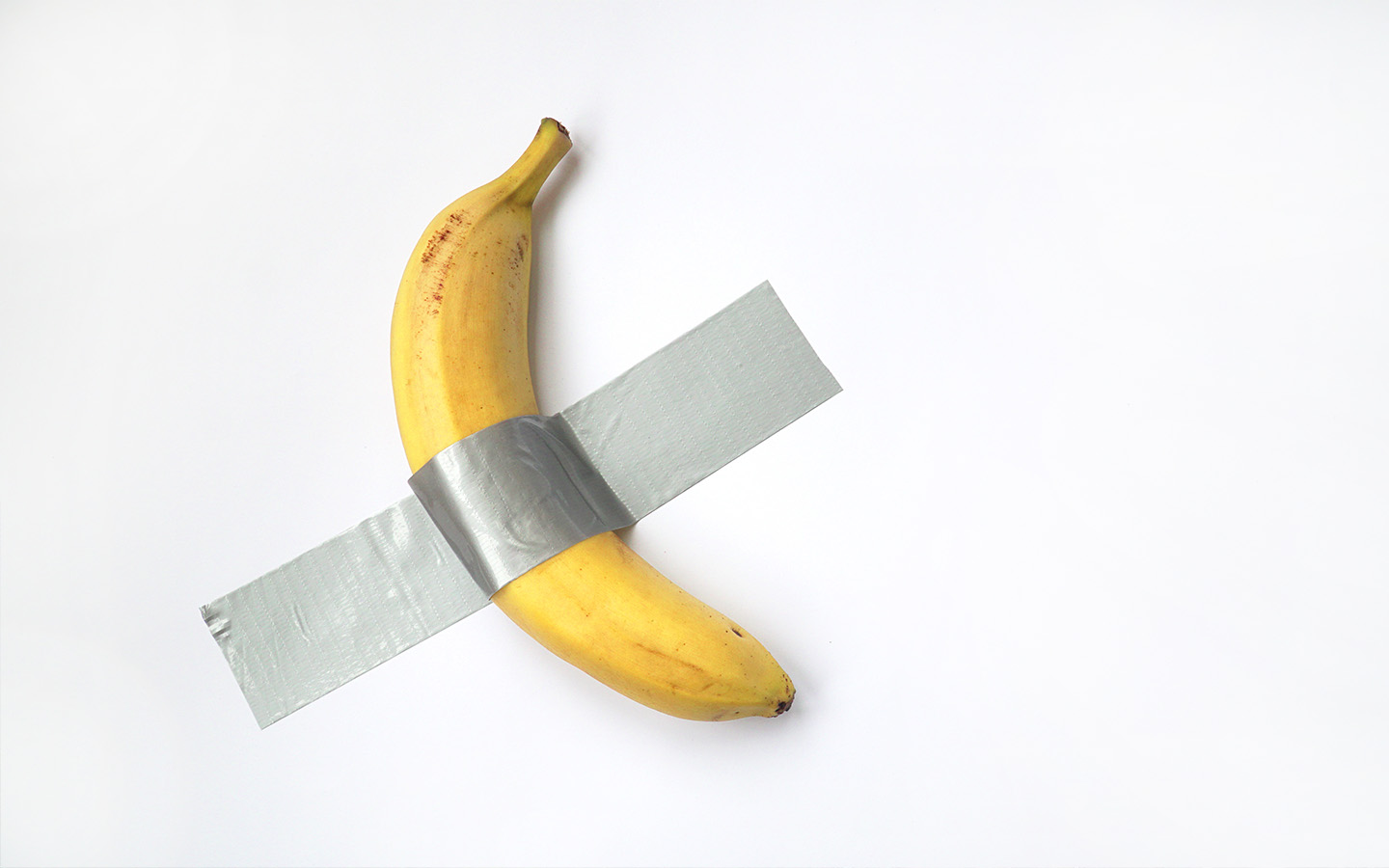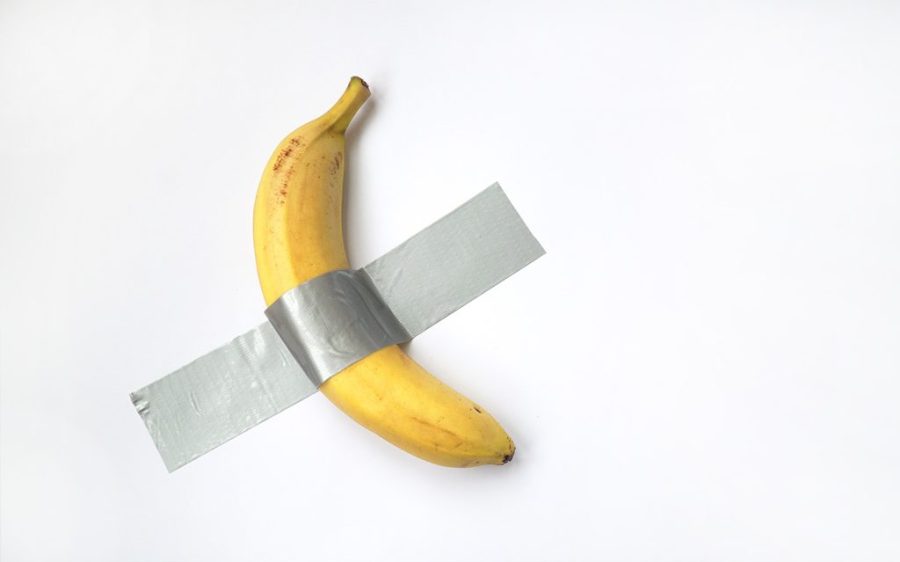A Sotheby’s auction on Thursday saw the conceptual artwork Comedian – which consists of a banana duct-taped to a wall – sell for US$5.2 million, reports the Guardian.
First attached to a gallery wall in 2019, then eaten – twice – by performance artists, the piece by Italian artist Maurizio Cattelan is described as a “sincere commentary on what we value” and quickly became a viral sensation.
Crypto entrepreneur Justin Sun called it a “cultural phenomenon,” paying more than four-times the initial estimate for the work after a competitive, fast-moving auction involving seven bidders.
At the auction’s conclusion, Sotheby’s auctioneer Oliver Barker remarked: “These are words I never thought I would say: ‘The banana has sold for 5.2 million dollars.’”
The actual price, once buyers’ fees were added, jumped to US$6.24 million. All that for a banana – purchased earlier in the day for just 35 cents, the New York Times reported – a roll of duct tape, instructions on how to install the work (including information on how to replace the banana) and a certificate of authenticity.
[See more: A rare Mozambican gem is the highlight of an upcoming Sotheby’s auction]
“To many people, the concept of paying anything more than the value of paint on canvas is baffling,” Melanie Gerlis, author of The Art Fair Story: A Rollercoaster Ride, told the Guardian.
“And yet there are plenty of people in the art world elite who spend thousands and even millions on paintings. Cattelan is pushing this idea to its logical conclusion.”
Rather than investing in the skill of a painter or the base value of the materials, Gerlis argued, “Sun is buying the story of Comedian, the publicity and his own version of how he wants to be seen as a collector, which are seemingly priceless.”
Cattelan is far from the first artist to employ everyday objects in challenging the idea of art – Marcel Duchamp and his “ready made” sculpture Fountain – nothing more than a signed porcelain urinal – helped create conceptual art over a century ago. However, most don’t see nearly the same success.
Matthew Slotover, co-founder of London’s Frieze art fair, told the Guardian that success comes down to an artist doing it the right way, at the right time, in the right context. “That’s true of works using found objects through history,” he said.






